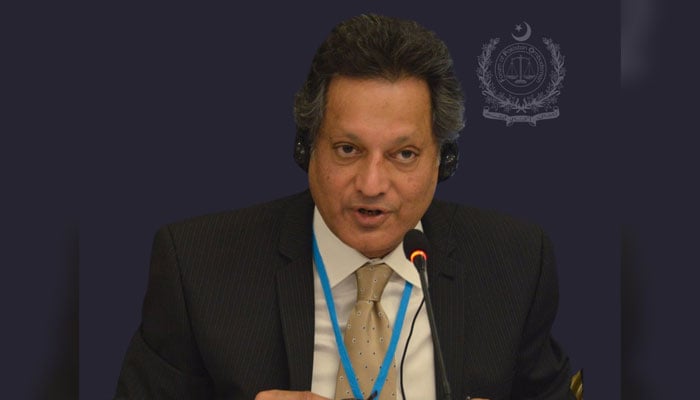Unauthorised tax exemptions: FTO detects medical institutions causing Rs7-9bn losses to exchequer
FTO urges FBR to rectify these issues by simplifying filing processes
ISLAMABAD: The Federal Tax Ombudsman (FTO) has found that medical colleges and universities secured undue and unauthorised tax exemptions, causing multibillion-rupees losses to the national exchequer.
“We have found that there are medical colleges involved in getting benefits of Rs700-900 million in each case. Thus, it runs into billions of rupees and total tax losses have been estimated at Rs7-9 billion,” FTO high-ups said during the media briefing, here on Wednesday.
Over the past 10 months, the FTO Secretariat received 10,515 complaints, of which 9,900 were resolved, Advisor Legal Almas Ali Jovindah said. Particularly, the proactive use of Section 33 of the FTO Ordinance, aimed at informal dispute resolutions, has surged, streamlining resolution process for taxpayers.
A key impact of the FTO’s intervention has been the expedited processing of delayed tax refunds. In just 10 months, Rs2 billion was refunded to taxpayers, a marked increase from Rs17.742 million in 2023. Additionally, Federal Tax Ombudsman Dr Asif Mahmood Jah has championed a record number of 31 own-motion investigations, addressing systemic issues within the tax administration, reaffirming the FTO’s dedication to eradicating taxpayer grievances. In the first 10 months of the current calendar year, the number of complaints increased by 67pc. “And we have conducted 117 outreach sessions in 2024,” the legal advisor said.
A recent case exemplifies this commitment: the FTO issued recommendations to the Federal Board of Revenue (FBR) on unjustified withholding tax deductions by the Punjab Council of Arts and Culture. The decision corrected tax practices to align with the Income Tax Ordinance, ensuring that low-income individuals were not burdened unfairly.
Furthermore, the FTO has taken a strong stance against FBR’s SRO 350(I)/2024, which inadvertently disrupted sales tax filings and business operations.
The FTO urged the FBR to rectify these issues by simplifying filing processes, providing guidelines, and updating the IRIS system to support compliance without hindrance. The call for an automated system to recognise mutual transactions between buyers and sellers reflected the FTO’s commitment to convenience and fairness in tax administration.
Additionally, the FTO’s investigation into a significant cybersecurity breach, which resulted in fraudulent transactions, revealed critical weaknesses in the FBR data security. The cyberattack led to Rs81.43 billion in fraudulent transactions and a tax loss of Rs14.66 billion. The FTO demanded immediate action to secure taxpayers’ data and apprehend the culprits, pushing the FBR to implement robust cybersecurity measures.
These developments underscore the FTO’s expanding role and renewed commitment to transparency, accountability, and protection of taxpayers’ rights. Through decisive action and strategic reforms, the FTO continues to set new benchmarks for efficiency and fairness in Pakistan’s tax administration, added the legal advisor.
-
 Pentagon Threatens To Cut Ties With Anthropic Over AI Safeguards Dispute
Pentagon Threatens To Cut Ties With Anthropic Over AI Safeguards Dispute -
 Meghan Markle's Father Shares Fresh Health Update
Meghan Markle's Father Shares Fresh Health Update -
 Travis Kelce Takes Hilarious Jab At Taylor Swift In Valentine’s Day Post
Travis Kelce Takes Hilarious Jab At Taylor Swift In Valentine’s Day Post -
 NASA Confirms Arrival Of SpaceX Crew-12 Astronauts At The International Space Station
NASA Confirms Arrival Of SpaceX Crew-12 Astronauts At The International Space Station -
 Can AI Bully Humans? Bot Publicly Criticises Engineer After Code Rejection
Can AI Bully Humans? Bot Publicly Criticises Engineer After Code Rejection -
 Search For Savannah Guthrie’s Abducted Mom Enters Unthinkable Phase
Search For Savannah Guthrie’s Abducted Mom Enters Unthinkable Phase -
 Imagine Dragons Star, Dan Reynolds Recalls 'frustrating' Diagnosis
Imagine Dragons Star, Dan Reynolds Recalls 'frustrating' Diagnosis -
 Steve Jobs Once Called Google Over Single Shade Of Yellow: Here’s Why
Steve Jobs Once Called Google Over Single Shade Of Yellow: Here’s Why -
 Barack Obama Addresses UFO Mystery: Aliens Are ‘real’ But Debunks Area 51 Conspiracy Theories
Barack Obama Addresses UFO Mystery: Aliens Are ‘real’ But Debunks Area 51 Conspiracy Theories -
 Selma Blair Explains Why Multiple Sclerosis 'isn't So Scary'
Selma Blair Explains Why Multiple Sclerosis 'isn't So Scary' -
 Will Smith Surprises Wife Jada Pinkett With Unusual Gift On Valentine's Day
Will Smith Surprises Wife Jada Pinkett With Unusual Gift On Valentine's Day -
 Shamed Andrew Has Paid Royal Favours With ‘national Scandal’
Shamed Andrew Has Paid Royal Favours With ‘national Scandal’ -
 Prince William Ticked Off By How Andrew ‘behaved With Staff’
Prince William Ticked Off By How Andrew ‘behaved With Staff’ -
 Prince William Questions Himself ‘what’s The Point’ After Saudi Trip
Prince William Questions Himself ‘what’s The Point’ After Saudi Trip -
 James Van Der Beek's Friends Helped Fund Ranch Purchase Before His Death At 48
James Van Der Beek's Friends Helped Fund Ranch Purchase Before His Death At 48 -
 King Charles ‘very Much’ Wants Andrew To Testify At US Congress
King Charles ‘very Much’ Wants Andrew To Testify At US Congress




